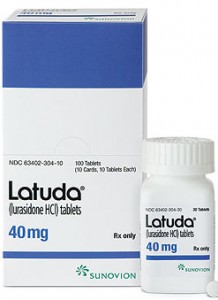20-Year Study Finds Clozapine and Long-Acting Injectable Antipsychotics Most Effective at Preventing Re-Hospitalizations for Schizophrenia
Few studies have evaluated the comparative long-term effectiveness of antipsychotics in preventing relapse, but a 2017 study from Finland published in the journal Schizophrenia Bulletin by Heidi Taipale and colleagues did just that, and found that clozapine and long-acting injectable antipsychotic drugs were most effective at preventing psychiatric re-hospitalizations.
The Finnish health care registry was used to prospectively collect data on the treatment of every person who received inpatient care for schizophrenia between 1972 and 2014. The patients totaled 62,250 including 8,719 in their first episode of schizophrenia. Follow-up to evaluate antipsychotic use began at 1996 for those with ongoing treatment, and upon first discharge from the hospital for those patients in their first episode. The follow-up time ranged from 6.9 to 20 years with an average of 14.1 years. During the follow-up period, 59% of patients were readmitted to psychiatric inpatient care.
Among the drugs with the lowest rates of relapse, olanzapine long-acting injection, clozapine, and paliperidone long-acting injection were associated with the least risk of psychiatric re-hospitalization. Among patients in a first episode, taking flupentixol long-acting injection, olanzapine long-acting injection, or perphenazine long-acting injection had the lowest risk of psychiatric re-hospitalization. Clozapine and the long-acting injections also had the least risk of hospitalization for any cause.
Mixed Depression
Mixed depression describes a state of depression accompanied by a few symptoms typically associated with mania. At the 2015 meeting of the International Society for Bipolar Disorders, researcher Roger McIntyre shared some findings about mixed depression.
People with mixed depression have higher levels of MHPG, which is produced as the neurotransmitter norepinephrine breaks down. They also have higher levels of the stress hormone cortisol and their depressions are more difficult to treat. Those with unipolar mixed depression may respond poorly to traditional antidepressants.
There are also medical risks associated with mixed depression. People with mixed depression are more susceptible to cardiovascular disease than are people with depressive symptoms alone.
The drugs lurasidone, olanzepine, and ziprasidone have each shown efficacy in mixed depression.
New Atypical Antipsychotic Lurasidone Has a Good Metabolic Profile
 Andre Pikalov and colleagues from Sunovion Pharmaceuticals Inc. reported at the 51st Annual Meeting of the National Institute of Mental Health’s New Clinical Drug Evaluation Unit (NCDEU) in 2011 on the weight and metabolic effects seen in short- and long-term trials of the atypical antipsychotic lurasidone (Latuda) in schizophrenia. The studies compared lurasidone to olanzapine (Zyprexa, at 15mg), haloperidol (Haldol, at 10mg), and placebo. Doses of lurasidone ranged from 20-120mg administered once daily. Short-term treatment for six weeks was associated with changes in weight and metabolic indices similar to those of placebo, while participants taking olanzapine gained substantial amounts of weight and had increases in triglycerides and cholesterol. Changes in glucose and hemoglobin A1C were similar on lurasidone, haloperidol, and placebo, but higher on olanzapine. In the long-term sample, mean weight gain on lurasidone at 12 months was 0.71 kg and metabolic parameters remained relatively unchanged.
Andre Pikalov and colleagues from Sunovion Pharmaceuticals Inc. reported at the 51st Annual Meeting of the National Institute of Mental Health’s New Clinical Drug Evaluation Unit (NCDEU) in 2011 on the weight and metabolic effects seen in short- and long-term trials of the atypical antipsychotic lurasidone (Latuda) in schizophrenia. The studies compared lurasidone to olanzapine (Zyprexa, at 15mg), haloperidol (Haldol, at 10mg), and placebo. Doses of lurasidone ranged from 20-120mg administered once daily. Short-term treatment for six weeks was associated with changes in weight and metabolic indices similar to those of placebo, while participants taking olanzapine gained substantial amounts of weight and had increases in triglycerides and cholesterol. Changes in glucose and hemoglobin A1C were similar on lurasidone, haloperidol, and placebo, but higher on olanzapine. In the long-term sample, mean weight gain on lurasidone at 12 months was 0.71 kg and metabolic parameters remained relatively unchanged.
Editor’s note: Multiple posters at the meeting composed a substantial body of evidence concerning acute and long-term studies of lurasidone, which shows that the drug has a weight and metabolic profile relatively similar to placebo and more favorable than that of olanzapine.
Although lurasidone has not been studied acutely or in the long term in patients with bipolar disorder, the safety profile of this drug in schizophrenia indicates that it may eventually be useful for acute and long-term treatment strategies in bipolar disorder. All typical and atypical antipsychotic drugs that have been approved for treatment of schizophrenia have subsequently been shown to have efficacy in acute mania, and given lurasidone’s similar actions in blocking dopamine receptors, there is little reason to expect that this drug will be any different. The results of actual studies of this drug in mania and depression are eagerly awaited.



